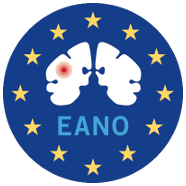-
PDF
- Split View
-
Views
-
Cite
Cite
Christina A. Meyers, Kenneth R. Hess, Multifaceted end points in brain tumor clinical trials: Cognitive deterioration precedes MRI progression, Neuro-Oncology, Volume 5, Issue 2, April 2003, Pages 89–95, https://doi.org/10.1093/neuonc/5.2.89
Close - Share Icon Share
Abstract
Current treatments for brain cancer have, for the most part, equivocal survival benefit. However, clinical trials of new anticancer agents do not adequately assess potential clinical benefits for patient function other than survival and time to tumor progression.We evaluated 56 patients with recurrent brain tumors who were recruited on phase 1 and phase 2 clinical trials and given assessments of cognitive function, quality of life (QOL), and ability to perform activities of daily living (ADL) prior to receiving treatment and at intervals coinciding with MRI scans, generally monthly. Meaningful change on the cognitive and functional assessments was determined by the reliable change index. Cognitive or functional deterioration was then used as a time-dependent covariate in a Cox proportional hazards regression model with tumor progression, as defined by standard criteria, as the end point. Cognitive deterioration occurred 6 weeks prior to radiographic failure (median 7.4 weeks vs. 13.4 weeks). In contrast, median time for QOL to deteriorate was not achieved. Median time for instrumental ADL to decline was 43 weeks, long after tumor progression. For patients with brain cancer, brain function began to worsen before MRI evidence of tumor progression. QOL and ADL function were not strongly tied to cognitive decline or to time to tumor progression, suggesting that these measures may not be sufficiently sensitive to change in clinical trials of new anticancer agents, although they are important measures in terms of patient care. This study also demonstrates the feasibility of performing neurocognitive testing in this patient population. New drugs that slow the cognitive decline of brain tumor patients may be of clinical benefit regardless of the impact on overall survival.
References
Aiken, R.D. (
Archibald, Y.M., Lunn, D., Ruttan, L.A., MacDonald, D.R., Del Maestro, R.F., Barr, H.W.K., Pexman, J.H.W., Fisher, B.J., Gaspar, L.E., and Cairncross, J.G. (
Benedict, R.H.B., Schretlen, D., Groninger, L., and Brandt, J. (
Benton, A.L., and Hamsher, K.de S. (
Brazil, L., Thomas, R., Laing, R., Hines, F., Guerrero, D., Ashley, S., and Brada, M. (
Browne, J.P., O'Boyle, C.A., McGee, H.M., Joyce, C.R., McDonald, N.J., O'Malley, K., and Hiltbrunner, B. (
Cella, D.F., Tulsky, D.S., Gray, G., Sarafian, B., Linn, E., Bonomi, A., Silber man, M., Yellen, S.B., Winicour, P., and Brannon, J. (
Choucair, A.K., Scott, C., Urtasun, R., Nelson, D., Mousas, B., and Curran, W. (
DeAngelis, L.M., Delattre, J.-Y., and Posner, J.B. (
Folstein, M.F., Folstein, S.E., and McHugh, P.R. (
Grant, R., Slattery, J., Gregor, A., and Whittle, I.R. (
Hess, K.R., Wong, E.T., Jaeckle, K.A., Kyritsis, A.P., Levin, V.A., Prados, M.D., and Yung, W.K. (
Hochberg, F.H., and Slotnick, B. (
Hutchinson, T.A., Boyd, N.F., Feinstein, A.R., Gonda, A., Hollomby, D., and Rowat, B. (
Imperato, J.P., Paleologos, N.A., and Vick, N.A. (
Jacobson, N.S., and Truax, P. (
Karnofsky, D.A., and Burchenal, J.H. (
Kleinberg, L., Wallner, K., and Malkin, M.G. (
Leibel, S.A., Gutin, P.H., Wara, W.M., Silver, P.S., Larson, D.A., Edwards, M.S.B., Lamb, S.A., Ham, B., Weaver, K.A., Barnett, C., and Phillips, T.L. (
Levin, V.A., Leibel, S., and Gutin, P.H. (
Lieberman, A.N., Foo, S.H., Ransohoff, J., Wise, A., George, A., Gordon, W., and Walker, R. (
Linacre, J.M., Heinemann, A.W., Wright, B.D., Granger, C.V., and Hamilton, B.B. (
Macdonald, D.R., Cascino, T.L., Schold, S.C., Jr., and Cairncross, J.G. (
Mackworth, N., Fobair, P., and Prados, M.D. (
Meyers, C.A. (
Meyers, C.A., Grous, J.J., Ford, K.M., and Downing, G. (
Meyers, C.A., Mehta, M.P., Eisenberg, P., Schultz, C.J., Ford, J.M., Roa, W., Leibenhaut, M., Phan, S.C., and Renschler, M.F. (
Meyers, C.A., Hess, K.R., Yung, W.K.A., and Levin, V.A. (
Meyers, C.A., Mehta, M.P., Rodrigus, P., Dehnad, H., Suh, J., Roa, W., Souhami, L., Bezjak, A., Komaki, R., Schultz, C., Timmerman, R., Curran, W.J., Meyers, S., Phan, S., Miller, R., Renschler, M.F., and Smith, J. (
Murray, K.J., Nelson, D.F., Scott, C., Fischbach, A.J., Porter, A., Farnan, N., and Curran, W.J. (
National Cancer Institute and National Institute of Neurological Disorders and Stroke (
O'Shaughnessy, J.A., Wittes, R.E., Burke, G., Friedman, M.A., Johnson, J.R., Niederhuber, J.E., Rothenberg, M.L., Woodcock, J., Chabner, B.A., and Temple, R. (
Osoba, D. (
Sachsenheimer, W., Piotrowski, W., and Bimmler, T. (
Salander, P., Karlsson, T., Bergenheim, T., and Henriksson, R. (
Scerrati, M., Montemaggi, P., Iacoangeli, M., Roselli, R., and Rossi, G.F. (
Scheibel, R.S., Meyers, C.A., and Levin, V.A. (
Scott, C.B. Quality-adjusted survival analysis of malignant glioma patients.
Sneeuw, K.C.A., Aaronson, N.K., Osoba, D., Muller, M.J., Hsu, M.A., Yung, W.K., Brada, M., and Newlands, E.S. (
Taphoorn, M.J.B., Schiphorst, A.K., Snoek, J.F., Lindeboom, J., Wolbers, J.G., Karim, A.B.M.F., Huijgens, P.C., and Heimans, J.J. (
Trojanowski, T., Peszynski, J., Turowski, K., Markiewicz P., Goscinski, I., Bielawski, A., Bendarzewska, B., Szymona, J., Dabrowska, A., Lopat kiewicz, J., Czochra, T., Jeziernicka, B., Basinska, G., and Kozniewska, H. (
Wade, D.T. (
Wechsler D. (
Weitzner, M.A., Meyers, C.A., Gelke, C.K., Byrne, K.S., Cella, D.F., and Levin, V.A. (
Author notes
Departments of Neuro-Oncology (C.A.M.) andBiostatistics (K.R.H.), The University of Texas M. D. Anderson Cancer Center, Houston, TX 77030, USA




